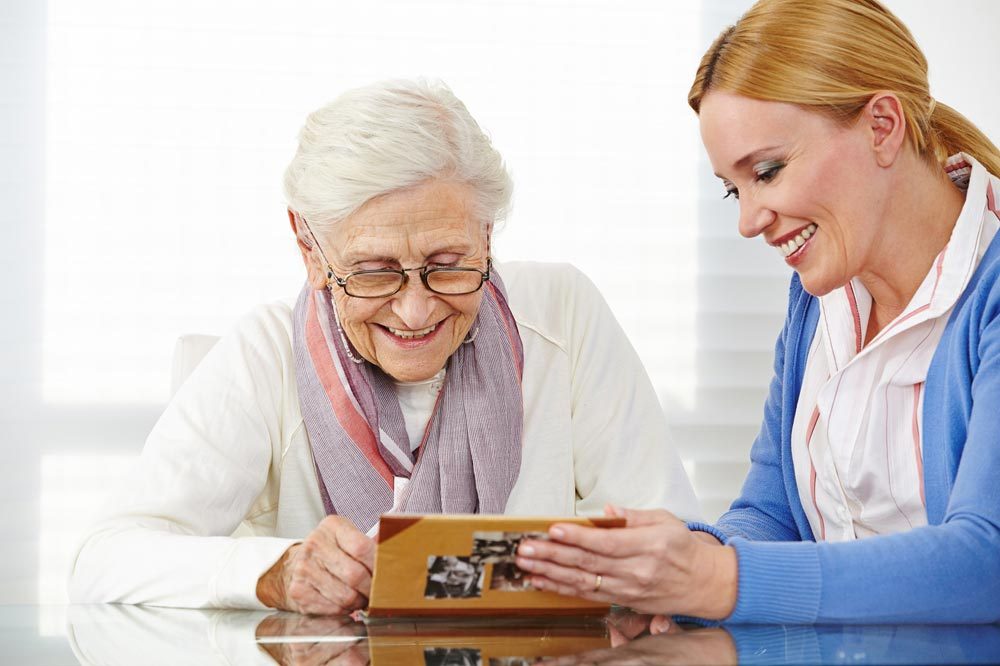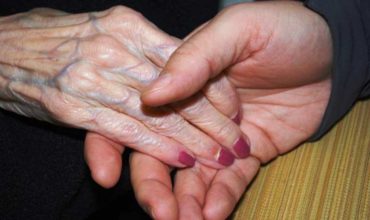The America population is aging and many families from the Baby-Boomer generation have become caregivers to an aging parent or relative. Most often thee households have two people working to manage finances, therefore there may be no one at home during the day to take care of an aging parent living alone or with the family. And even in those situations where a family member is available, that individual will have personal needs to attend to, or simply need a break.
For families and caretakers of the elderly, the thought of committing their loved one to a full care facility may be unbearable and financially challenging for an extended period of time. Most families naturally want to keep the elderly parent or relative at home for as long as possible, but become more and more concerned about leaving him or her alone for even a brief period. And as more and older people, over the past twenty years, have had to turn to their children for living assistance, the number of in-home eldercare services providers has increased.
Many aging relatives, who require assistance, become isolated and depressed. They suffer from increased healthcare problems due to poor exercise and nutrition habits. Often their homes are in decline do to the time restraints family members’ face assisting their aging relatives. Therefore they reside in unsafe, unhealthy environments that can contribute to accidents and health issues.
How Home Care Services Work
State Licensed homecare providers are staffed with people trained to assist with the special needs of the elderly. The non-medical home care providers have its limitations on how much and what kind of adult care they provide, so those considering them as options should find out in advance if they offer appropriate solutions for their family members’ needs. If you need medical services you should research local Home Health Nursing Agencies.
Most homecare provider’s nurse-aide staff prepares meals, hygiene care, and social interaction, give medication reminders, assist with house management and provide transportation services to an elderly person.
By providing a safe, caring and professional staff an elderly family member can continue to live in their own homes by having the majority of their personal care needs met. This provides the family caregiver time to rest and attend to their other responsibilities without worrying. Most homecare service providers offer their services for at least three up to 24 hours and will have a nurse on staff to evaluate and determine an individualized plan of care for an aging relative.
How To Choose A Homecare Provider
If you are deciding on a homecare service provider for your elderly family member, the first thing you should do is research the qualifications of the provider and its staff. You want to make sure beforehand that your loved own will be both comfortable and safe with an experienced, qualified caregiver. You also need to make sure the office staff is responsive to your requests and have a planned schedule of in-home supervisory visits by a Registered Nurse to insure you are receiving the services paid your family member is well attended.
Insure the homecare provider does through background checks, motorized vehicle reports, reference checks and hires qualified nurse-aides with at least 5 years experience in the healthcare industry. It is very important to make sure they are licensed by Department of Health and Human Services and the provider is bonded and insured. With a multitude of new senior care franchise owners, who have little or no experience in this industry, it is a good idea to make sure the provider has been in business at least 5 years. Also check your local medical providers, hospital discharge planners, elder law attorneys and Better Business Bureau for their professional reputation.
Word of mouth is the best referral for a homecare provider. Current or past clients can vouch for the agencies service standards. Each elderly person may have a unique host of individuals needs that should be qualified and implemented in a manner that can best meet them.
Related items
How to Take Care of Yourself While Taking Care of a Loved One?
Remember: your needs are important too! Caring for a loved one is an emotional task and ca
With What Things Should We Have Outside Help For Eldercare?
THIRD IN A SERIES: EASY ANSWERS TO TOUGH QUESTIONS ABOUT ELDERCARE
You can read the first






